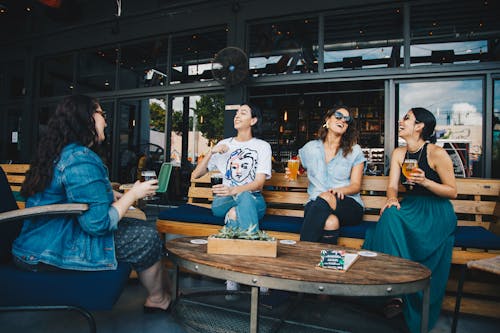Three Complex Elements of Every Conversation
We have many conversations each day, but it’s unlikely you’ve ever had the exact same conversation twice. Language, communication & relating are three elements that impact each conversation we have. All three of these elements are universally complex; each of them for a unique reason.
1. Nuances in Language & Meaning
Words are powerful, but they are imperfect. After all, we drive on parkways & park on driveways, but we don’t walk on sideways! Ha!
Because the relationship between word and meaning is subtle & layered, we sometimes interprete the same words in different ways. So, we have a British “biscuit” & an American “biscuit,” the same word representing two distinct foods depending on the context.
Differences aren’t always immediately so obvious though, especially for speakers of a common language. One translation company’s tagline is “Because meaning turns on a word” & the truth of this statement is potentially more complex when two speakers of the same language understand a word differently.
You’ve had one of those moments, haven’t you? One moment everything is fine & the next you aren’t sure how the misunderstanding happened. One factor is the complexity of language. We can’t blame it all on words though…
2. Communication is a multi-layered process.
Communication is another complex element of conversation. We all communicate, but we each do so differently. Whether thinking outloud, talking to your best friend or in a group, each person has an individual way they communicate.
In conversation, we are each in turn speaking, listening, interpreting, thinking, feeling, & filtering noise… because these details occur quickly & mostly, instinctively, we are often unaware of the complexity of the process of communication itself. Rather, we are more aware of our experience.
In some situations expressing ourselves is easy, while in others it feels downright impossible, but in either case, we each have patterns to how we communicate that affect how we relate to people & situations.
3. We all relate in unique ways.
Usually the dynamics are “good enough” that the communication process can happen rapidly with mostly successful interaction, but even the best relationships take effort.
Each of us is unique, so we relate uniquely. Because we each have unique stories, we sometimes experience the same situations in different ways. The result is unique interpretations of the same experiences. Relating is a third element of complexity in conversation.


